The outdoor industry will tell you that you need all sorts of clothing, gear and footwear if you want to get outside with your kids. Some of this gear really does make a big difference in helping you enjoy nature together. But hiking boots are not one of them. Here’s why and what your kids should wear instead of hiking boots.
Why I Don’t Buy Hiking Boots for My Kids
Hiking Boots Are Hot and Heavy
Even though boot technology is a lot better, hiking boots are still big and bulky. It’s not easy for little legs to wear such large and heavy footwear! They will get tired faster. Boots are also hot and can easily get uncomfortable for kids.
The last thing you want is your child to associate hiking with tiredness and discomfort. They will start to hate it. It’s better to have them wear comfortable footwear than dedicated hiking boots.
They Are Expensive
Hiking boots for kids are expensive, especially considering that they will grow out of them in a year. If your kids are young, they might even grow out of the boots in a season. That adds up to a considerable expense.
And, for the reason below, you shouldn’t pass hiking boots down to a younger child like you would with jackets or sleeping bags. You’d have to buy new boots for each child!
Secondhand Boots Aren’t a (Good) Option
My kids get almost exclusively secondhand clothing but I don’t buy them secondhand boots. It’s not a hygiene issue. It’s a foot issue.
Once someone has worn footwear, the cushioning gets compressed and sole shapes to their feet. If you give you kids secondhand hiking boots, it could actually affect their feet!
Further, most secondhand sellers don’t allow returns. If the secondhand boots arrive and aren’t comfortable for your child, there’s no getting your money back.
Probably Don’t Need Ankle Support
Your kids probably aren’t hiking on very difficult trails or carrying heavy packs, so they don’t really need the extra ankle support that boots provide. Even a lot of hardcore backpackers who are going on difficult trails while carrying packs have switched away from boots!
Running in Boots = More Falls
Young kids love to run when in nature. Boots simply aren’t meant for this. They limit ankle mobility, which in turn means the body has to compensate by using the hip and knee joints more. As a result, running in boots is more physically demanding. Factor in the clunkiness of boots and your kids are more likely to fall and injure themselves.
Situations Where Kids Actually Need Hiking Boots
If your child is:
- Backpacking for multiple days
- Hiking a difficult trail
- Carrying a heavy pack
- Older so doesn’t do much running or
- Asking for hiking boots…
Then it might make sense to get them hiking boots.
A note about backpacking with kids: Pack some hiking sandals for them to wear at camp. This will let their feet rest and they can run around easier without splatting on their face.
What to Use Instead of Hiking Boots
If your kids don’t wear boots hiking, what should they wear? Here are some good options.
Their Normal Sneakers
Unless it’s a very challenging hike, your child’s everyday sneakers should be fine. As an added bonus, you already know they are comfortable and don’t have to worry about breaking them in ahead of time to prevent blisters.
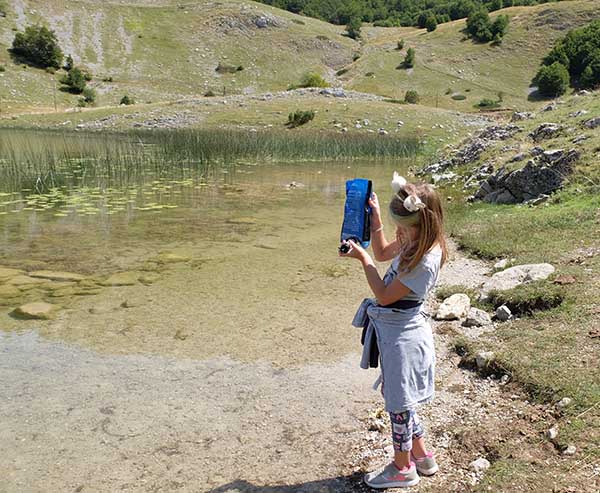
My daughter hiked a semi-tough trail to 6,000ft in her sneakers. And, yes, she’s wearing cotton hiking!
Trail Runners
Compared to normal sneakers, trail runners have much better traction. They also are more breathable than most sneakers. This is particularly useful when your child falls into a stream because trail runners will dry out faster than boots.
If you go hiking or backpacking often, then save some money by buying trail runners as your child’s everyday sneakers too. Kids outgrow them before the tread gets worn down, so that’s not an issue.
Some good brands of trail runners for kids are:
Hiking Sandals
In summertime, hiking in sandals is probably the best option for kids. They don’t necessarily have to be specific “hiking” sandals. Just choose ones which have good support and are sturdy. No flip-flops!
Winter Boots
In cold or really muddy weather, winter boots can pass for hiking boots. The tread allows for good traction and the fit is better than rubber wellington boots.
Pro Tip: Choose unlined winter boots for your kids. Have them wear really thick socks with them in winter. By the time spring comes and their feet have grown a bit, the boots still fit with thinner socks on. They might even still fit in summertime with thin sports socks.
Weigh in! Do you think hiking boots are worth it for kids? Let us know in the comments section below.
Resources:
https://www.ncbi.nlm.nih.gov/pmc/articles/PMC9231798/,
https://hardtokillfitness.co/blogs/fitness-articles/a-brief-guide-to-running-in-boots,
https://thenaturalparentmagazine.com/ok-kids-wear-secondhand-shoes/,
https://outdoors.com/ankle-support-myth-or-fact/,
https://www.ncbi.nlm.nih.gov/pmc/articles/PMC1323436/
Image credits:
“Ther Kids On The Capitol Gorge Trail” (CC BY-NC-SA 2.0) by Joe Shlabotnik,
“20200801181444_0214 Hiking na Senhora do” (CC BY-NC-SA 2.0) by jnvasconcelos,


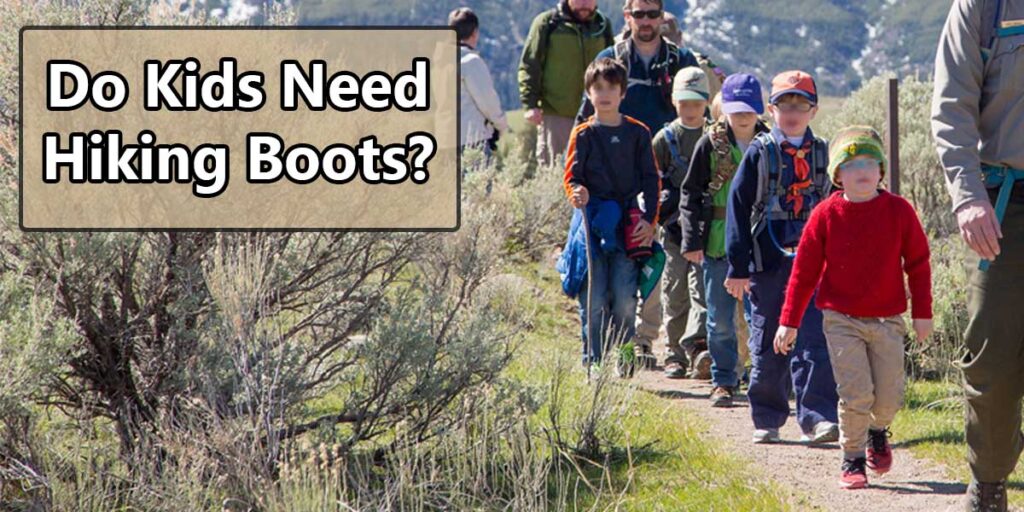
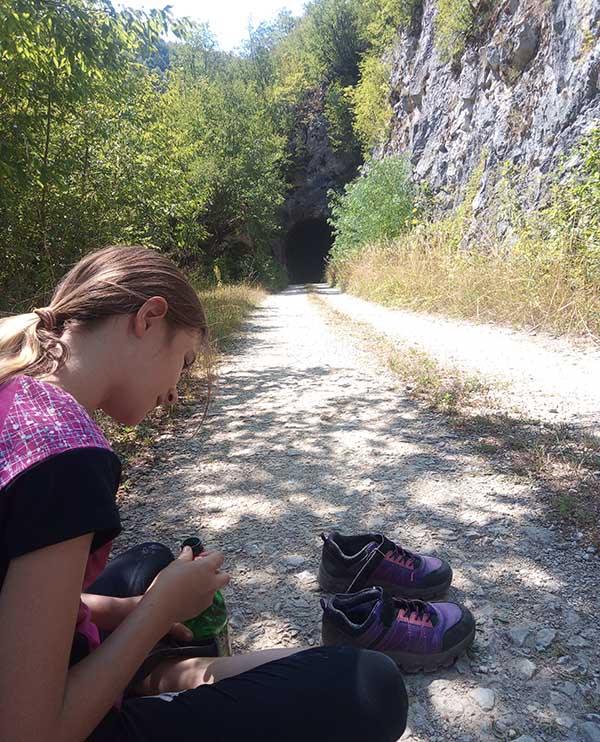
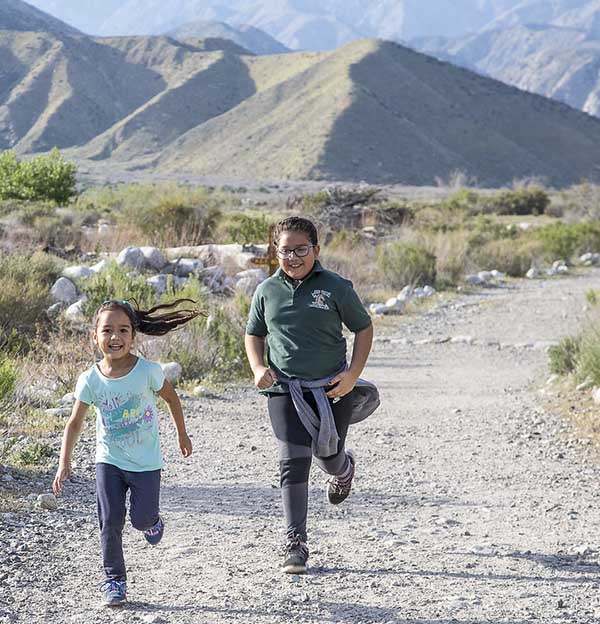
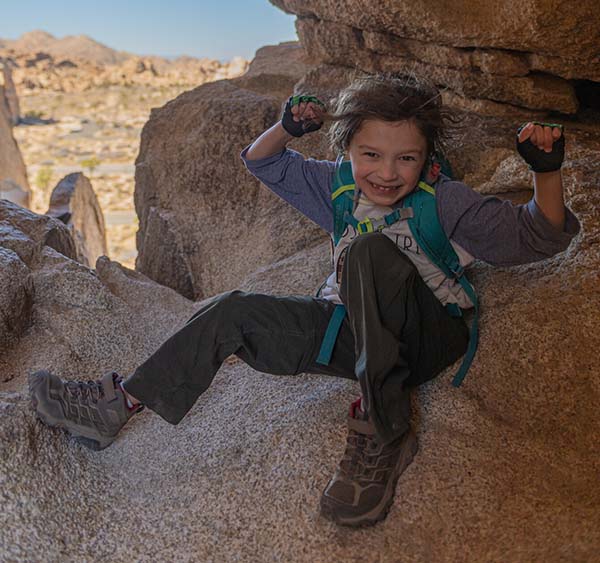
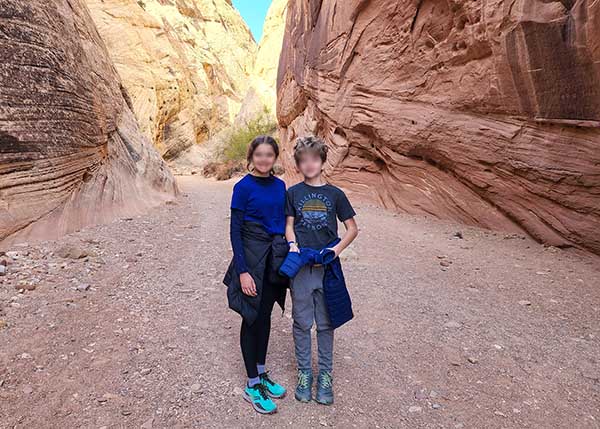
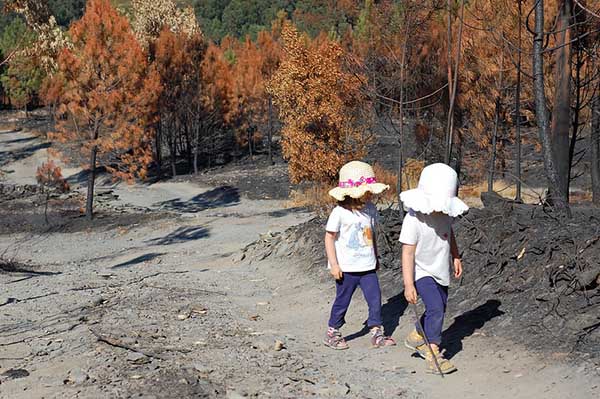
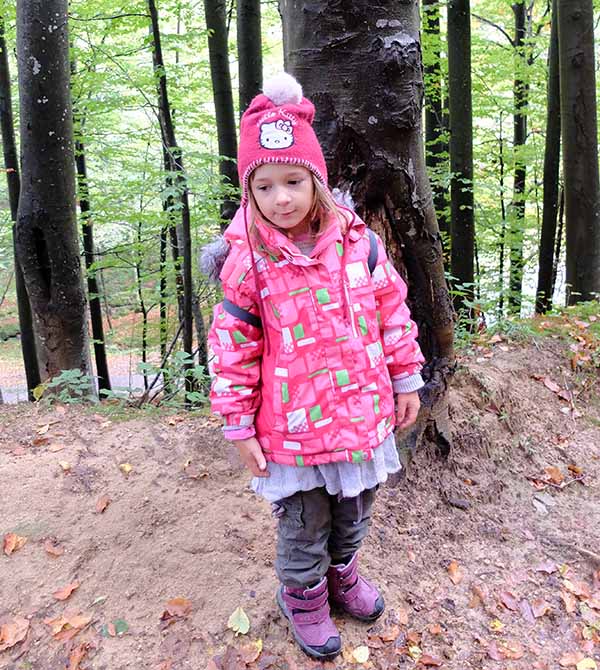
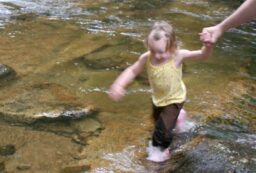
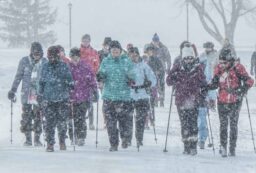

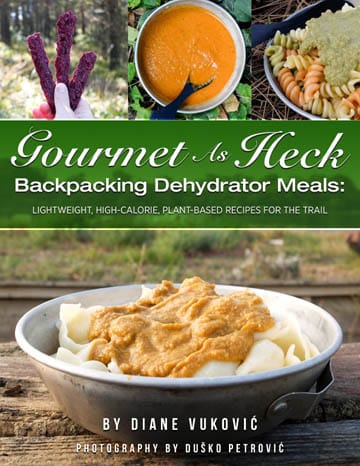



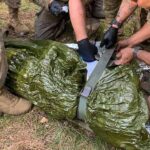
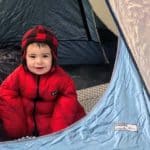
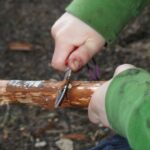
Post your comments